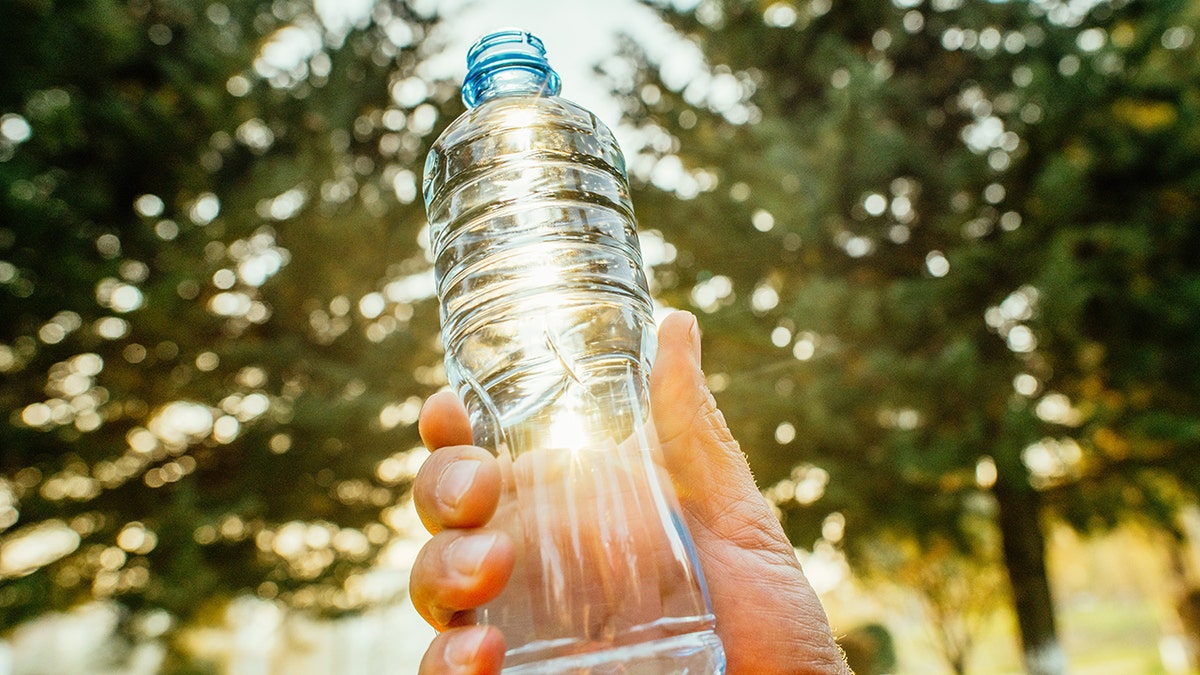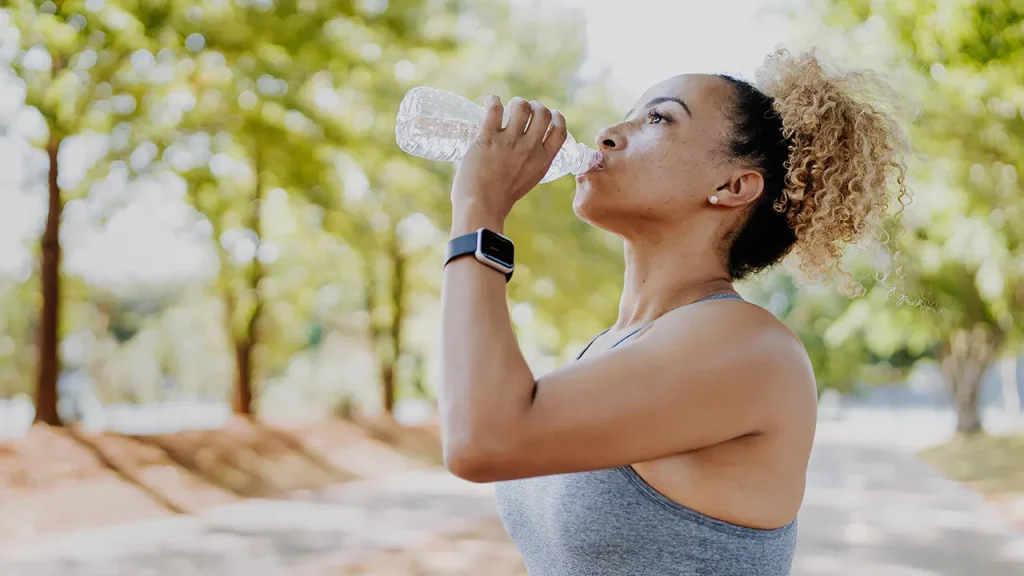NEWYou can now listen to Fox News articles!
Microplastics are a known threat to overall health — and eating and drinking from plastic containers, like water bottles, could be a great offender, researchers suggest.
A new study published in the Journal of Hazardous Materials analyzed 141 existing scientific papers on microplastics and nanoplastics from single-use plastic water bottles to gauge how much plastic people may be ingesting.
Researchers at Concordia University in Montreal, Canada, discovered that the average person consumes 39,000 to 52,000 microplastic particles per year, according to a university press release.
PLASTIC WATER BOTTLE LEFT IN A HOT CAR? THINK TWICE BEFORE SIPPING FROM IT
Individuals who drink bottled water regularly ingest up to 90,000 more particles each year than those who drink mainly tap water, the study found.
The researchers noted that nanoplastics are especially concerning, as they’re invisible to the naked eye and smaller than 1 micron. They can also enter human cells, cross biological barriers and have the potential to reach organs and tissues, they cautioned.

“People need to understand that the issue is not acute toxicity – it is chronic toxicity,” said the lead researcher of the study. (iStock)
Nanoplastics and microplastics have both been linked to serious and long-term health complications, including respiratory and reproductive issues, brain and nerve toxicity, and cancer risks.
BOTTLED WATER FOUND TO CONTAIN TENS OF THOUSANDS OF ‘TINY PLASTIC PARTICLES’ IN NEW STUDY
These particles entering the bloodstream and vital organs can also cause chronic inflammation, oxidative stress on cells and hormonal disruption, according to the release.
These tiny plastic pieces emerge as bottles are made, stored, transported and broken down, and shed particles when they’re manipulated and exposed to sunlight or temperature changes, experts cautioned.

Exposure to sunlight and temperature changes can cause plastic particles to shed, experts warn. (iStock)
“The long-term effects remain poorly understood due to a lack of widespread testing and standardized methods of measurement and detection,” the release stated.
CLICK HERE TO GET THE FOX NEWS APP
Lead study author Sarah Sajedi, an environmental management expert and Ph.D. candidate at Concordia University, said in the press release that the health risks of plastic water bottles are “seriously understudied.”
“Education is the most important action we can take,” she said. “Drinking water from plastic bottles is fine in an emergency, but it is not something that should be used in daily life. People need to understand that the issue is not acute toxicity — it is chronic toxicity.”

Individuals who drink bottled water regularly ingest up to 90,000 more particles each year than those who drink mainly tap water. (iStock)
The analysis did have some limitations, the researchers noted. The numerous studies used various testing methods, which means results are not always comparable. Some were also lacking in data on the size and composition of these particles.
The researchers called for further standardized testing and stronger policies to control the contamination of plastics in bottled water.
The analysis was supported by the Natural Sciences and Engineering Research Council of Canada and Concordia University.
Industry reps speak out
In January 2025, the International Bottled Water Association issued a statement related to the risk associated with microplastics and nanoplastics, pointing out that bottled water is among thousands of food and beverage products that are packaged in plastic containers.
CLICK HERE TO SIGN UP FOR OUR HEALTH NEWSLETTER
“The bottled water industry is committed to providing consumers with the safest and highest quality healthy hydration products,” says the statement on IBWA’s website. “Micro- and nanoplastics are found everywhere in the environment — in the air, soil and water.”
“Because there are no certified testing methods and no scientific consensus on the potential health impacts of micro- and nanoplastics, the industry supports conducting additional research on this important issue.”

The FDA issued a statement on the topic in 2024, stating that “current scientific evidence does not demonstrate that levels of microplastics or nanoplastics detected in foods pose a risk to human health.” (iStock)
In 2024, the FDA issued a statement on the topic, stating that “current scientific evidence does not demonstrate that levels of microplastics or nanoplastics detected in foods pose a risk to human health.”
The agency noted that it will continue to monitor research on microplastics and nanoplastics in foods and that it is “taking steps to advance the science and ensure our food remains safe.”
For more Health articles, visit www.foxnews.com/health
In a 2022 report from the World Health Organization, the agency stated that “no adverse health effects could be drawn from dietary exposure to micro- and nanoplastic particles less than 10 microns due to minimal scientific research.”
Fox News Digital reached out to the Concordia University researchers and to multiple bottled water companies for comment.

